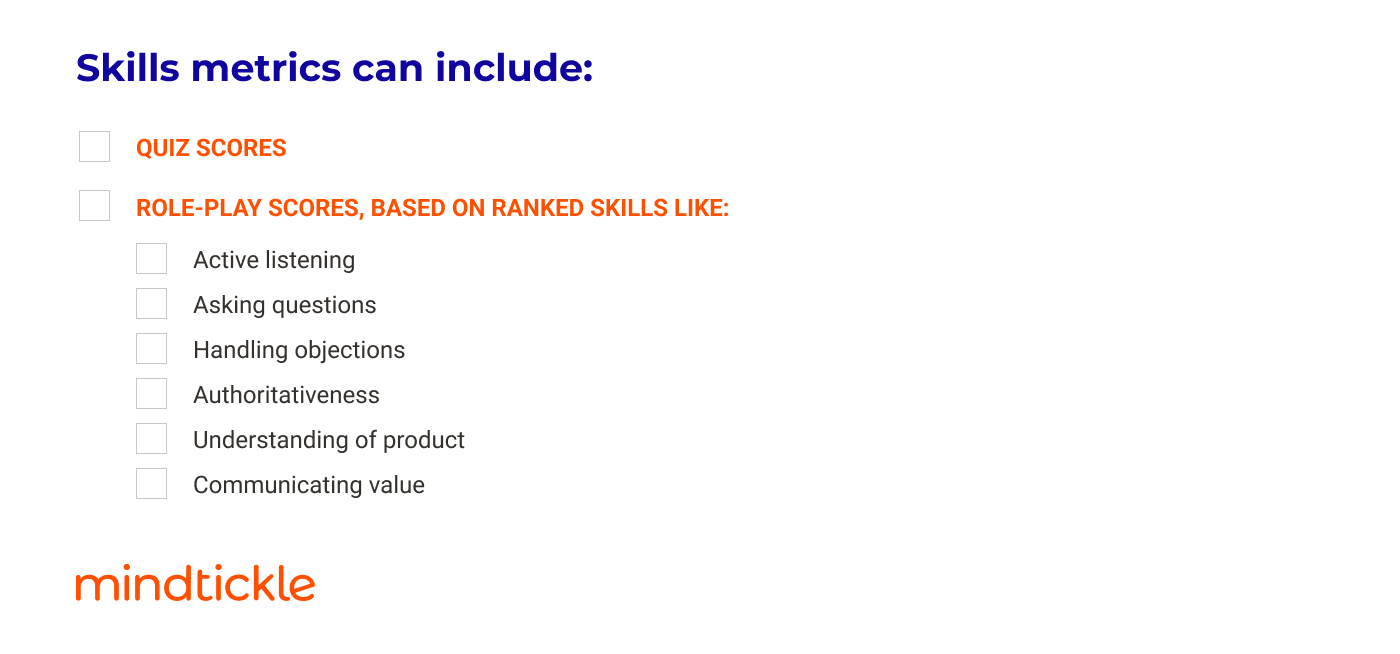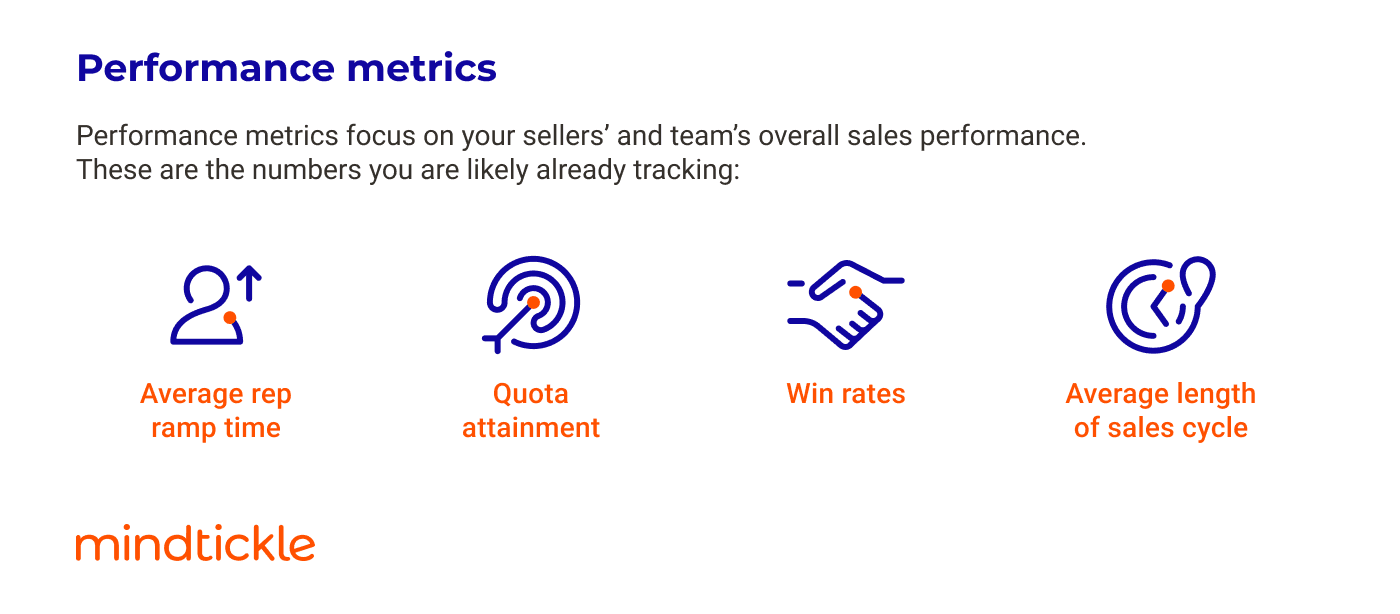Effective sales coaching and skills development usually come down to one thing: time.
In an in-person office setting, you can observe some rep behaviors firsthand. You know when sellers make calls, meet with customers, and practice pitches.
But even though you were physically there, sales managers still couldn’t sit in on every meeting or call with each rep. Our State of Sales Readiness Report 2022 shows that, on average, managers oversee eight sales reps. With time stretched across the entire team, skill coaching often falls to the wayside. Our research also found that manager-led coaching sessions with each rep happens just once a month.
Now that hybrid working is the norm, effective coaching can’t rely on in-person time with sellers. More than ever, sales managers now need to rely on data to drive and support business decisions—including training and coaching reps to boost performance.
What metrics do you need to measure performance and effectively coach? We break analytics down into three categories: knowledge, skills, and behaviors. Keep reading to learn more.
Knowledge
Knowledge informs mastery of skills as well as behaviors practiced. To effectively communicate your product’s benefits, a seller must know the features and capabilities of that product. To engage a buyer, a seller needs to know the buyer’s industry and pain points. And the best way to disseminate this information is through onboarding, training, and ongoing enablement.
Onboarding is an introduction to your organization and a new sales hire’s role—presenting the perfect opportunity to educate them on product, processes, competitors, and much more. And likewise, training beyond onboarding is particularly useful to reinforce learnings and expand knowledge.
But what should you be measuring to ensure sellers are actually learning? Start with these:
- Onboarding and training completion
- Onboarding and training engagement
- Certification achievement
Offering microlearning opportunities with the right enablement tools makes it easier for reps to access and participate in training — and easier for managers to track these knowledge metrics.
Skills
Beyond tracking knowledge, it’s critical to understand how reps are applying what they’ve learned after their training. Skills assessments provide insights into whether the learning sticks and is being used properly.
These assessments can be done through simple quizzes, or as a collaborative effort in role-playing exercises. Reps can practice and record their pitches for you to evaluate. Assign a ranking of certain skills tied to role-plays to get an idea of where each seller is at, and where there are gaps.
Skills metrics can include:

Sales readiness platforms that utilize artificial intelligence (AI) analyze recorded role-plays to do most of the analysis for you. Such tools can provide a snapshot of the skills listed above (and more), which you can then use to inform additional training, personalized for each rep’s unique needs.
Behavior
Lastly—and perhaps most importantly—is how skills and knowledge translate to behaviors in the field. It’s one thing to know the ins and outs of your product, but are your salespeople able to communicate that to buyers in a way that demonstrates true value?
As helpful as it would be, managers can’t be in multiple places at once and have limited time each day. Further, they’ve got daily responsibilities beyond rep performance, like managing relationships with other departments, meeting with other leaders, and ensuring sales goals align with those of the larger business.
Behavior-centric metrics can be divided into three segments: call metrics, performance metrics, and coaching metrics.
Call metrics measure a seller’s behavior as it pertains to customer calls. A conversation intelligence tool records and transcribes calls and uses AI to provide deep analysis. Managers can view the following metrics for individual reps:
- Use of filler words
- Use of pre-established keywords
- Questions asked by reps
- Questions asked by buyers
- Length of monologues
Performance metrics focus on your sellers’ and team’s overall sales performance. These are the numbers you are likely already tracking:


Coaching metrics focus on specific behaviors discussed in one-on-one coaching sessions between rep and manager, and how those behaviors are trending. An effective coaching platform enables managers to easily schedule sessions and follow-ups, seamlessly integrate training and coaching opportunities, evaluate manager coaching performance, and track improvement on reps’ lagging skills. Related to coaching are two other considerations: rep tenure and turnover. Sellers who feel supported are likely to stay longer, saving your organization significant time and money to bring in new hires. If you aren’t tracking rep retention, and correlating it with training and coaching efforts, start now.
Ensure managers and reps are ready
The Mindtickle Readiness Index is the best way to analyze and improve sales performance. With tools for benchmarking, training, and coaching, you can connect sales readiness with revenue — all in one platform. Our Call AI conversation intelligence solution gives managers a firsthand look at how sellers perform in buyer interactions. Training and virtual role-play opportunities provide ongoing and reinforced learning, solidifying skills that are essential to field success. And the Mindtickle Asset Hub means reps have access to all the latest training and customer-facing content needed to stay on top of their game and engage buyers.
Ready to get started? Request a demo of Mindtickle today.







